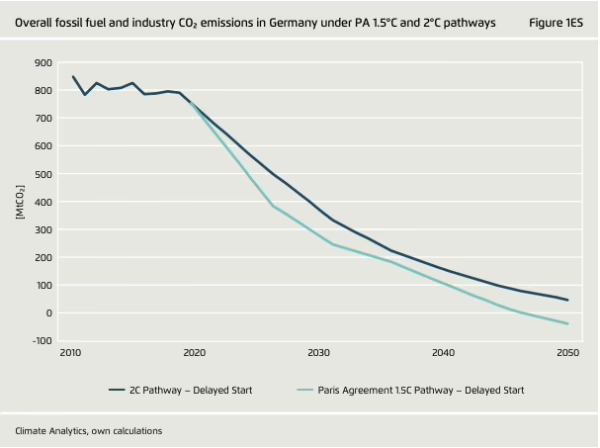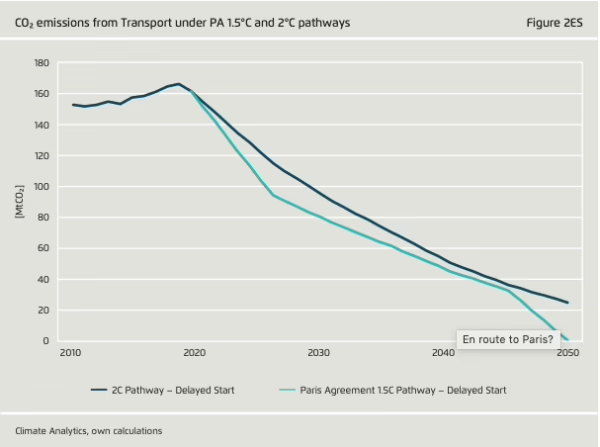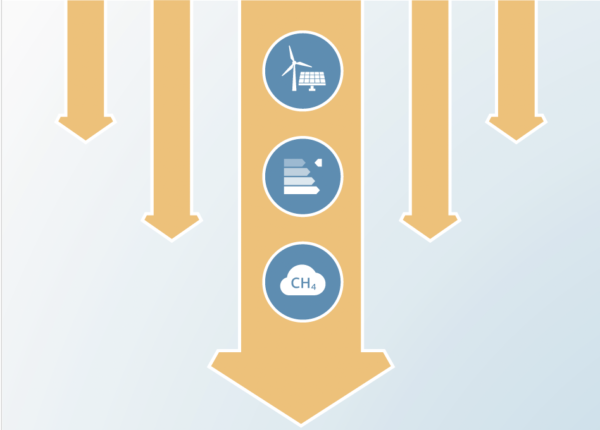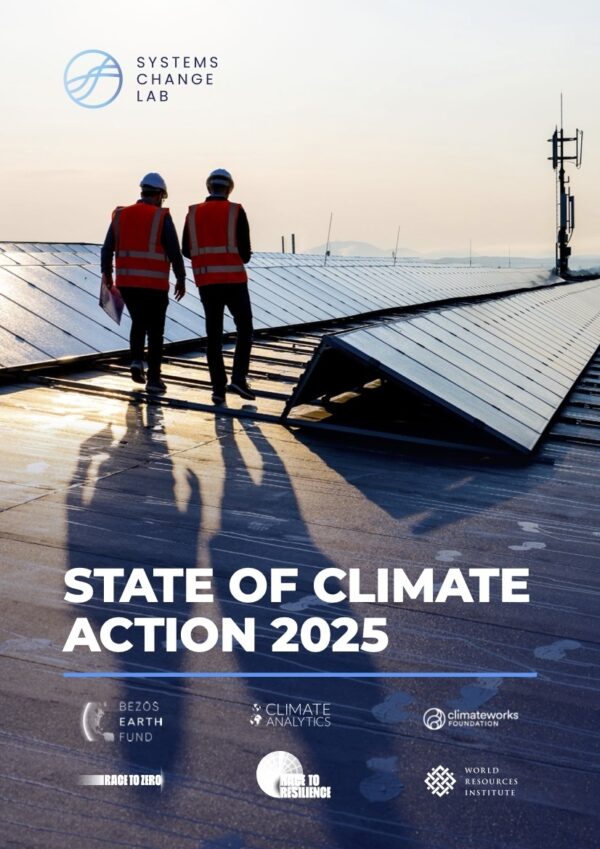En route to Paris? Implications of the Paris Agreement for the German transport sector
Authors
Ursula Fuentes Hutfilter, Fabio Sferra, Paola Parra, Michiel Schaeffer, Bill Hare
Share

Germany will have to boost its national targets and implement appropriate measures if it is to meet the Paris Agreement’s goals. This will place considerable demands on the transport sector, according to this Climate Analytics study commissioned by Agora Verkehrswende. The EU’s most populous country will also have to support the bloc in increasing its climate action.
Key messages from the report:
1. To do its part in meeting the Paris Agreement targets, Germany must rapidly reduce its greenhouse gas emissions across all sectors. In its Special Report on Global Warming of 1.5°C, the IPPC identified mitigation pathways consistent with the Paris Agreement. From these, national and sectoral carbon budgets and emissions pathways can be derived that minimise overall global mitigation costs. For a least-cost pathway for limiting global warming to 1.5°C, Germany has to reduce its total domestic greenhouse gas emissions by 73 per cent by 2030 and by 98 per cent by 2050 relative to 1990 levels. The least-cost pathway for limiting global warming to 2°C would require Germany to cut its emissions by 68 per cent by 2030 and by 90 per cent by 2050.

2. Germany and the EU will have to raise their medium-term reduction targets if they are to be compatible with the Paris Agreement. Germany currently aims to reduce its domestic greenhouse gas emissions by 55 per cent by 2030. This is now not enough: Germany needs to set its sights on a more ambitious target. Moreover, it must urge the EU to significantly increase its current 2030 reduction target of 40 per cent. The Paris Agreement and Germany’s Climate Action Plan 2050 require both to present these new, more ambitious plans in 2020.
3. A massive escalation of mitigation efforts is needed in the transport sector. Currently, Germany’s Climate Action Plan calls for the reduction of transport sector emissions by 40–42 per cent by 2030. This goal is inconsistent with the Paris Agreement targets. For Germany to be on a least-cost pathway to keeping global warming below 1.5°C, its transport sector emissions need to fall by 53 per cent by 2030 relative to 1990 levels. Even limiting global warming to 2°C would require Germany to reduce its transport emissions by 44 percent by 2030. With the current policy trend, transport sector emissions in 2030 will be more than double the level permissible under the least-cost Paris Agreement 1.5°C pathway. If current trends continue beyond 2030, the German transport sector will have released, cumulatively, 5.4 billion tonnes of CO2 between 2016 and 2050. This figure is more than twice the transport sector carbon budget of 2.6 billion tonnes consistent with staying on the 1.5°C pathway and still well beyond the 2°C pathway budget of 3 billion tonnes.

4. For the sake of climate equity, Germany’s overall mitigation contribution needs to be higher than the level required by a least-cost emissions reduction pathway. In order to contribute its fair share to meeting the 1.5°C target, Germany would have to reduce its emissions – according to a central estimate – by 87 per cent by 2030 relative to 1990 levels. This exceeds its least-cost domestic reduction target by around 14 percentage points. Germany could close this gap by, for example, increasing its funding for international mitigation efforts.
5. Fast reductions of transport sector emissions and its full decarbonisation by 2050 are possible. Key elements in achieving these goals are a strongly accelerated electrification of passenger and freight transport linked to an intensified expansion of renewable electricity generation, a switch to public transport and other more sustainable forms of travel (such as walking or cycling), an increase in rail freight, and an overall more efficient organisation of the transport sector overall. To this end, alongside infrastructural and regulatory measures, pricing instruments – effective carbon pricing in particular – are of central importance.











